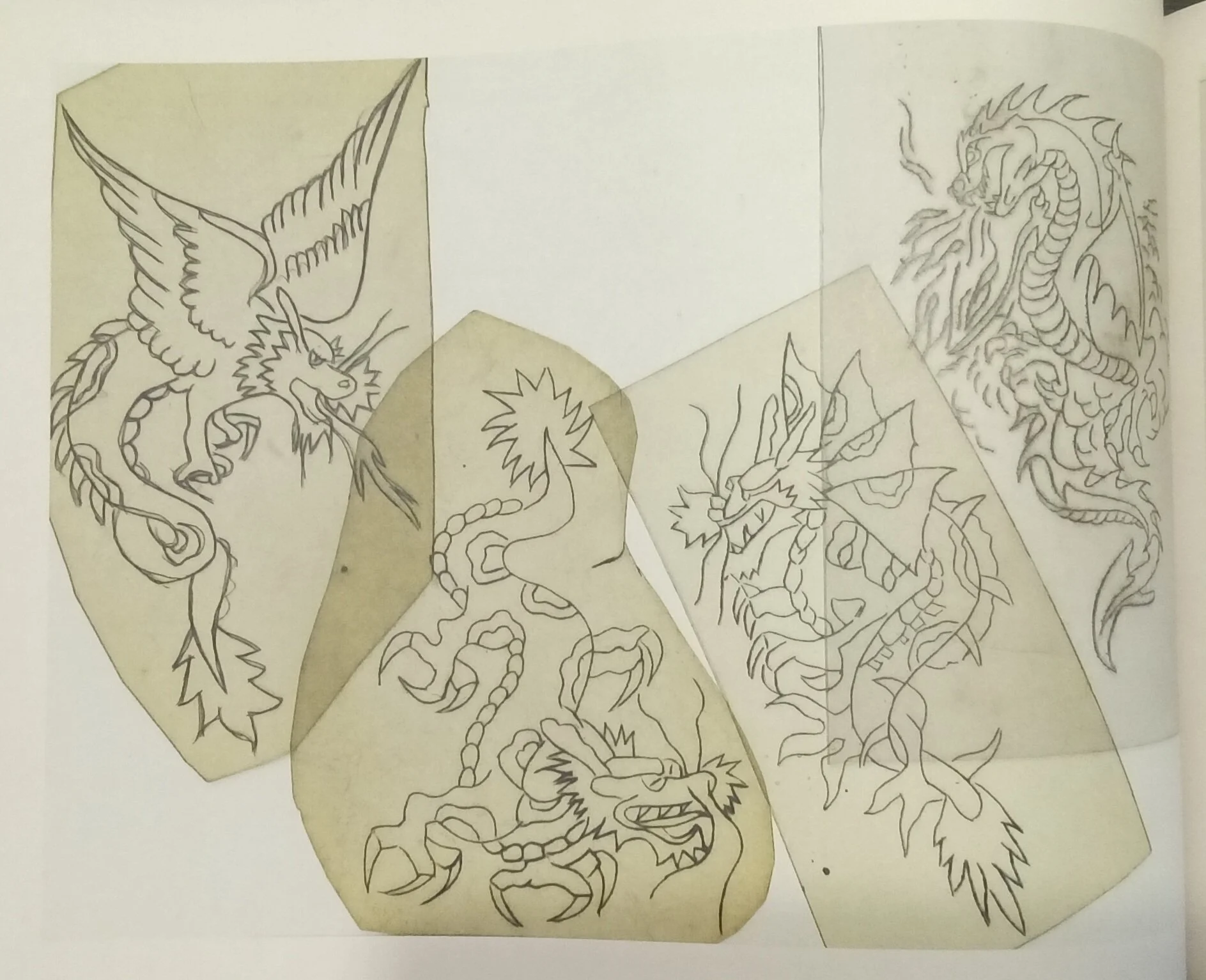 Image 1 of 15
Image 1 of 15

 Image 2 of 15
Image 2 of 15

 Image 3 of 15
Image 3 of 15

 Image 4 of 15
Image 4 of 15

 Image 5 of 15
Image 5 of 15

 Image 6 of 15
Image 6 of 15

 Image 7 of 15
Image 7 of 15

 Image 8 of 15
Image 8 of 15

 Image 9 of 15
Image 9 of 15

 Image 10 of 15
Image 10 of 15

 Image 11 of 15
Image 11 of 15

 Image 12 of 15
Image 12 of 15

 Image 13 of 15
Image 13 of 15

 Image 14 of 15
Image 14 of 15

 Image 15 of 15
Image 15 of 15
















Classic Tattoo Stencils: Designs in Acetate
440pgs, 9x12: $100
This is a staggering volume of thousands of examples of the celluloid acetate stencil, an essential tool in the history of tattooing. Mythical creatures, angels and devils, anchors and other nautical symbols, and more abound in stencil form, the classic tracing method that has only increased exponentially in popularity since the rough days of crude materials and callused hands.
Before Thermofax™ and numbing cream, tattooists had to hone their tracing skills perfectly—and clients had to hope for the best. Over time artists would ask sailors and dock workers to let them trace remarkable tattoos they got at other ports, effectively inventing design replication.
Today tattoo artists use tattoo stencils to transfer designs onto wood, quilts, and even cabinets. A worthy companion to Flash from the Bowery: Classic American Tattoos, 1900-1950, this volume continues to ignite the curiosity of American history and tattoo buffs.
440pgs, 9x12: $100
This is a staggering volume of thousands of examples of the celluloid acetate stencil, an essential tool in the history of tattooing. Mythical creatures, angels and devils, anchors and other nautical symbols, and more abound in stencil form, the classic tracing method that has only increased exponentially in popularity since the rough days of crude materials and callused hands.
Before Thermofax™ and numbing cream, tattooists had to hone their tracing skills perfectly—and clients had to hope for the best. Over time artists would ask sailors and dock workers to let them trace remarkable tattoos they got at other ports, effectively inventing design replication.
Today tattoo artists use tattoo stencils to transfer designs onto wood, quilts, and even cabinets. A worthy companion to Flash from the Bowery: Classic American Tattoos, 1900-1950, this volume continues to ignite the curiosity of American history and tattoo buffs.
440pgs, 9x12: $100
This is a staggering volume of thousands of examples of the celluloid acetate stencil, an essential tool in the history of tattooing. Mythical creatures, angels and devils, anchors and other nautical symbols, and more abound in stencil form, the classic tracing method that has only increased exponentially in popularity since the rough days of crude materials and callused hands.
Before Thermofax™ and numbing cream, tattooists had to hone their tracing skills perfectly—and clients had to hope for the best. Over time artists would ask sailors and dock workers to let them trace remarkable tattoos they got at other ports, effectively inventing design replication.
Today tattoo artists use tattoo stencils to transfer designs onto wood, quilts, and even cabinets. A worthy companion to Flash from the Bowery: Classic American Tattoos, 1900-1950, this volume continues to ignite the curiosity of American history and tattoo buffs.

































































































